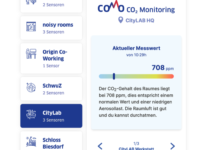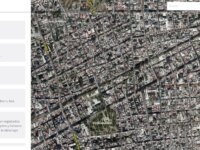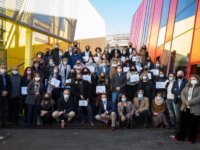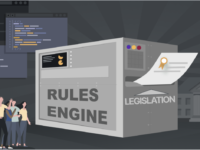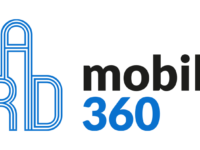In COMo, the CO2 concentration (CO2 = Carbon Dioxide) serves as a measure for indoor air quality and aerosol pollution; the latter correlates with the potential (COVID) viral load. Objective CO2 readings via networked sensors enable operators to control the indoor air quality and thus reduce the risk of infection for visitors. Published data allow visitors to make decisions about visiting the facility.
All content is available under open source licenses (MIT, BSD, Creative Commons).
Innovation Tag: Digital and Technology Transformation
Case Study
Living Together Promoters – A new profile in behavioral sciences applied to public policy

The "Living Together Promoters" program began in early 2020 as an initiative of the Cordoba City Hall. It is considered innovative because it seeks to promote change management within the Administrative Misdemeanor Court by using diverse methods from behavioral and data sciences. Specifically, to provide evidence about the institutional status quo, and to assess the potential impacts of modifying social behaviors and norms inside of the institution.
Buenos Aires 3D City is an open digital platform that allows three-dimensional visualization of each neighborhood and, specifically, the areas where it is possible to build infrastructure (i.e., housing, commercial and retail buildings, etc.) according to the current city's regulations. The platform is open to district decision-makers and professionals working in the construction industry; it functions as an interdisciplinary work tool to simplify procedures, provide predictability and…
Blockchain is transforming the world and we created the first pilot to experiment with this technology, promoting this transformation in the Colombian State entities making it more efficient, transparent and agile. We seek to accompany and promote projects that generate better services and processes within the entities; learning and documenting the entire process.
Digitalization is key to the present and future of local commerce in any city. For digitalization to be effective, it must be personalized, thinking about the uniqueness of commerce, connected with the local and with the world to achieve greater competitiveness. Like the "Sherpas" in the mountains, the "Digital Sherpas" in Las Rozas guide businesses in digitalization and the multichannel and gamified platform "Las Rozas Fans" helps them connect to the world in an attractive and easy way for…
The Australian Government - Dept of Finance sponsored a Proof of Concept (PoC) that looked at how Rules as Code (RaC) might be provided as a shared utility that can be used to deliver simpler, personalised digital user journeys for citizens. RaC is the process of taking legislation and regulations and turning them into machine-readable code. It provides many benefits to citizens and government, including greater reuse, less duplication, greater transparency and accessibility of rules.
Case Study
Driving Artificial Intelligence in Public Services through accredited upskilling and project…
The Foundation Certificate in AI project seeks to make Ireland a world-leader in the ethical application of Artificial Intelligence across the Irish civil and public services by 2030 and is in line with the digital ambition, which the government of Ireland set itself. The project aims to upskill/reskill Irish Civil & Public Servants, identify a pipeline of potential AI projects that can improve service delivery, deliver value for money and is aligned National Strategy in AI & Innovation.
Madrid Mobility 360' is a mobile application that allows citizens moving around the city and calculates the most efficient route between all modes of transport in the capital, both public and carsharing or bicycles. It includes a powerful route planner, which allows estimating current and future journey times, and provides the capacity on a specific bus. The app allows payment for various methods of transport and reports the CO2 emissions generated.
Case Study
Artificial Intelligence (AI) for Classification of Requests at the Citizen Services Desk.
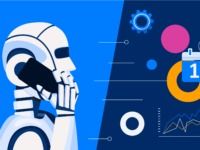
The initiative is about the automation in the classification of service desk requests using AI techniques such as Natural Language Processing and open source tools to reduce the costs, optimize resources and improve response times in benefit of the citizens and the public institutions as service providers. The solution is developed by AGESIC (E-Government and Information and Knowledge Society Agency); this is an algorithm based solution in charge of classifying topics on different categories of…
Customer-oriented public services direct the authorities to look at citizens from their own responsibilities without taking into account a citizen’s overall life situation. A human-centric and life event -based operating model supported with the life-event service ecosystem technology enables the authorities to produce value directly in people's life events through the cooperation of other service providers in a timely and proactive manner.

